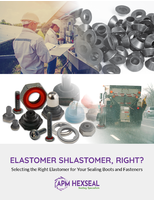Local Stone Wool Manufacturer ROCKWOOL Earns Environmental Award from the Tennessee Valley Authority for Carbon Reduction Efforts in 2016-2017
MILTON, ON, Nov. 13, 2018 /PRNewswire/ - ROCKWOOL was recently recognized by the Tennessee Valley Authority (TVA) for significantly lowering its carbon emission rates for 2016 - 2017 at its Byhalia, Mississippi production facility.
Circularity is an important element in ROCKWOOL's manufacturing processes, and the company actively employs a wide variety of sustainability measures aimed at reducing its own carbon footprint while helping home and building owners do the same. As a result, ROCKWOOL was among just a handful of businesses that earned TVA's coveted award for the largest year-over-year carbon emission improvement for 2016-2017.
TVA tracks directly-served customers with specific as-delivered carbon emission rates. It offers two exclusive awards for environmental excellence including Lowest Carbon Emissions and Most Improved Carbon Emissions, for the greatest mass reduction in a calendar year.
"ROCKWOOL maintains a steadfast commitment to sustainability," says Trent Ogilvie, President, ROCKWOOL (North America). "Byhalia, like all our North American facilities, embraces the key pillars of ROCKWOOL's global sustainability program, which reflects our dedication to achieving 9 out of the 17 United Nations Sustainable Development Goals. In addition to our carbon reduction efforts, at ROCKWOOL, we aim to be a responsible citizen through our products, operations, programs and policies."
ROCKWOOL sustainability measures within the Byhalia, Mississippimanufacturing facility include:
- Waste reduction strategy, aimed at limiting or preventing waste to landfill. A zero waste to landfill target is the goal, whenever possible
- Upcycling of reclaimed by-products from other industries for use as raw materials in our products (further diverting potential waste away from landfills). Approximately one-third of ROCKWOOL raw materials is repurposed waste from, amongst others, the steel and aluminum industries
- Ensuring the products manufactured have a green footprint - comprised of up to 40 percent recycled materials
- Heat from the manufacturing process is recovered and used to heat our facility
- Water used in the production process is collected and reused, reducing total consumption by as much as 50 percent. Storm water is also collected for use in manufacturing, reducing costs and demand on the municipal water system
- ROCKWOOL facilities are understandably constructed with a great deal of attention to insulation best practices, as it remains one of the easiest and most cost-effective ways of conserving energy
- All ROCKWOOL-owned sites implement a no-idling policy to limit CO2 emissions
- Natural light has been optimized through strategic building design, while low-energy lighting has been installed throughout the site, reducing the energy demands of the building
Overall, through its products, operations, programs and policies, ROCKWOOL and its production facilities will support the United Nations Sustainable Development Goals pertaining to: Good Health & Wellbeing; Clean Water & Sanitation; Affordable & Clean Energy; Decent Work & Economic Growth; Industry, Innovation & Infrastructure; Sustainable Cities & Communities; Responsible Consumption & Production, Climate Action, as well as Partnerships that advance Sustainability Goals.
"We want to recognize Valley businesses who share our commitment to improve air quality and the health of our communities," said Dan Pratt, TVA vice president of Customer Delivery. "Businesses with low carbon footprints are assets to their communities because they have made a commitment to making a positive impact to improving the environment."
According to Pratt, TVA carbon dioxide emissions are down 47 percent and are on track to be about 60 percent below 2005 levels before 2020 – that is about twice as much as the U.S. energy industry as a whole for the same time period. This performance has also helped make the region's air quality better now than when measurements began in the 1970s.
"We could not have achieved these reductions alone," notes Pratt. "It takes a team of TVA, local power companies and Valley industries who are committed to reduce carbon emissions."
For the latest ROCKWOOL news and more information, visit www.ROCKWOOL.com.
About ROCKWOOL
With five manufacturing facilities and over 1,000 employees, ROCKWOOL is North America's largest stone wool producer, offering advanced building insulation, industrial and technical solutions.
At the ROCKWOOL Group, we are committed to enriching the lives of everyone who experiences our solutions. Our expertise is perfectly suited to tackling many of today's biggest sustainability and development challenges, from energy consumption and noise pollution to fire resilience, water scarcity and flooding. Our range of products reflects the diversity of the world's needs, supporting our stakeholders in reducing their own carbon footprint along the way.
Stone wool is a versatile material and forms the basis for all our businesses. With more than 11,000 passionate colleagues in 39 countries, we are the world leader in stone wool solutions, from building insulation to acoustic ceilings, external cladding systems to horticultural solutions, engineered fibers for industrial use to insulation for the process industry, marine and offshore. For more information, visit: www.rockwoolgroup.com (global site) or www.rockwool.com (North America).
SOURCE Rockwool Group




